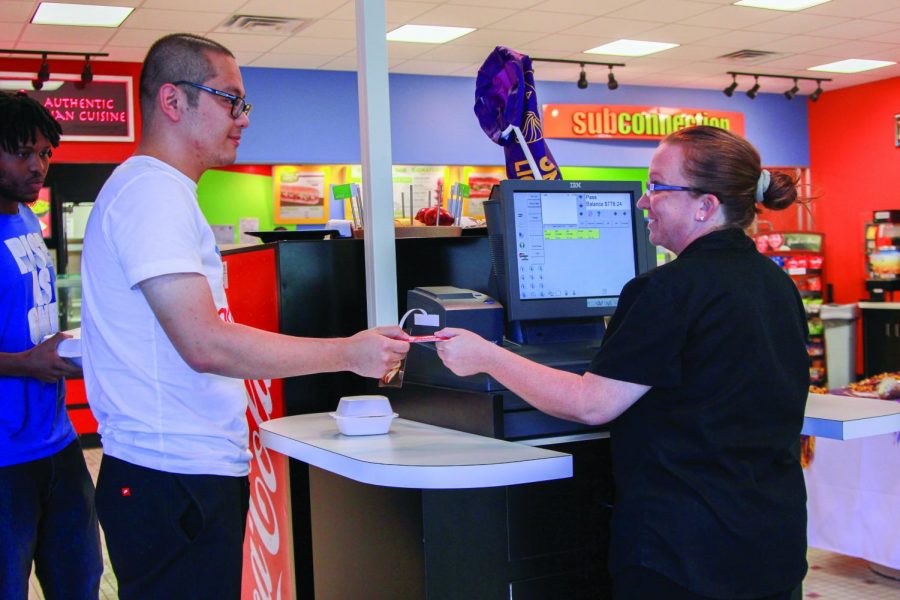Local banks help UNA students establish good credit habits
September 19, 2015
About 167 million Americans are credit card holders, according to statistics from the 2014 Census Bureau. Additionally, seven in 10 2013 college graduates used student loans to pay for school.
However, some students do not use loans or credit to pay for school. These students often cannot get a department store credit card or a gas card to start building credit.
Director of Financial Literacy Matthew Van Ormer said, “no credit is worse than bad credit” is the biggest myth surrounding credit.
“I look at credit like relationships,” Ormer said. “Are you going to be more likely to date someone who’s cheated on you or someone who you have no experience with? The person with no experience is the person I would trust first.”
He said students can start building credit as long as they have a job and some way to prove their income, such as a bank statement or check stub.
“It doesn’t matter how good your credit is, if you don’t have a source of income, how are you going to pay your loan or card back?” he said.
Ormer said there are two ways students can build credit: bank credit cards and personal loans.
Credit Cards
Ormer said bank credit cards are a great way to start building credit. He said he encourages students to start with a low-limit credit card if they have no credit history.
He said credit cards are not bad, but people’s spending habits can be.
“Sometimes people don’t know how they’ll handle something until it’s given to them,” he said.
For this reason, he said he encourages students to start with a low-limit credit card to help them adjust to paying the card back.
“I usually start people off with a $500 credit card if they have no credit,” he said. “That’s a small amount. It’s not so much that it’ll get you over your head.”
He said he would consult a local bank or credit union, rather than a national company or bank, to get started with a low-limit credit card. Most local banks have credit cards geared toward students or young people with no credit.
“Typically, the people you talk to (at a national bank) don’t make the decisions when it comes to cards and loans,” he said. “A processing center evaluates it and sends it back. At a local bank or credit union, you’re more likely to talk to somebody who will make the decision and base it on more than just your credit.”
One benefit of credit cards is if the balance of the card is paid every month, the borrower does not have to pay interest, he said.
Senior Brittany Leach said she got a credit card to build good credit.
“You have to be really careful with a credit card,” she said.
Loans
With seven in 10 college graduates already using student loans to pay for school, loans are another way students can build credit. However, students are not required to start paying loans until they graduate, Ormer said.
He said a student loan does generate a credit score for students still in college, but banks usually do not consider that score accurate if the student has not made a payment yet.
If a student does not have a student loan or has not started paying on their student loans, they can build credit through a cash-secured loan. Borrowers borrow from a bank and put an amount equal to the loan up as collateral the bank can take if they fail to pay the loan.
“These loans don’t deal with credit scores at all since the borrower puts up money as collateral,” he said. “This type of loan is best for people with bad credit or no credit.”
Unlike credit cards, loans do collect interest, no matter what time the loan is paid, he said. Typically, students do not have to pay on their loans until after graduation or it they drop out of school, he said.
“Stay on top of those loan payments,” he said. “I’ve seen so many students let their loans go. They think they can just worry about it later. All of those late or missed payments will trash your credit score.”
If a student graduates and cannot find full-time employment immediately, Ormer said he or she should talk to the loan provider about adjusting the payment amount or deferring the loan for several months.
“Deferment is never ideal, but it’s better to defer the loan than to let it be lain,” he said.


